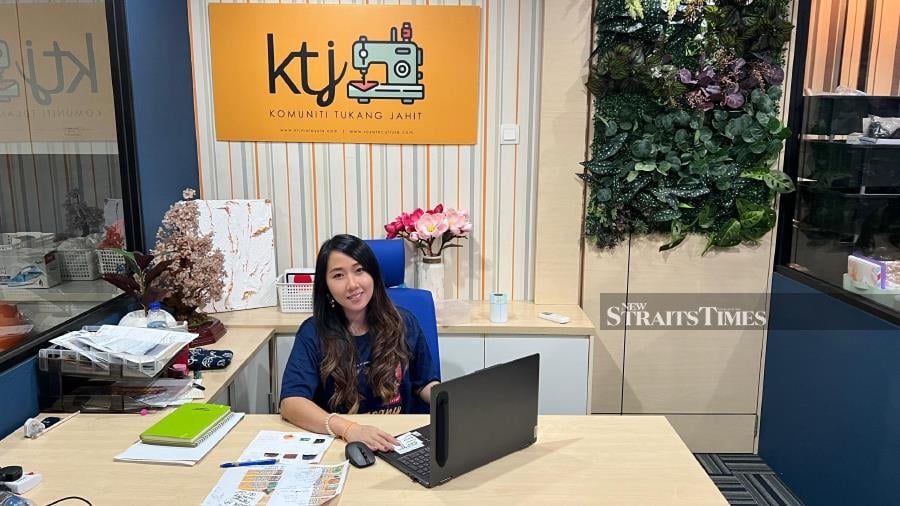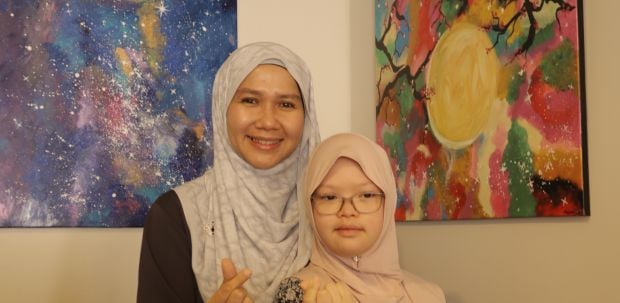THIS unassuming building in the hinterlands of Ampang may not appear to be a hub of women's empowerment and education, at first glance. The opaque glass panels reveal little about what lies inside.
Around the terraced shop lots, there's minimal activity, with most of the units shuttered. I stand there feeling uncertain for a few minutes, wondering if I should call Yap Sue Yii as my Grab car drives away.
Just as I'm about to reach for my phone, the glass door opens and a smiling, hijab-clad young woman peers out, beckoning me inside. "Looking for Miss Yap?" she asks. Without waiting for a response, she adds: "She's inside! Come in!"
The refreshing blast of air conditioning provides a welcome relief from the scorching midday sun. As I remove my shoes, my gaze is drawn to a bright yellow banner proclaiming "KTJ" or "Komuniti Tukang Jahit" in bold letters. Above it, a slogan proudly states, "Empowering women of Malaysia, one stitch at a time."
It's more than just a pithy phrase, of course. Since 2018, Komuniti Tukang Jahit (KTJ) has been bringing together women tailors from diverse backgrounds, offering them a chance to earn a decent living doing what they love.
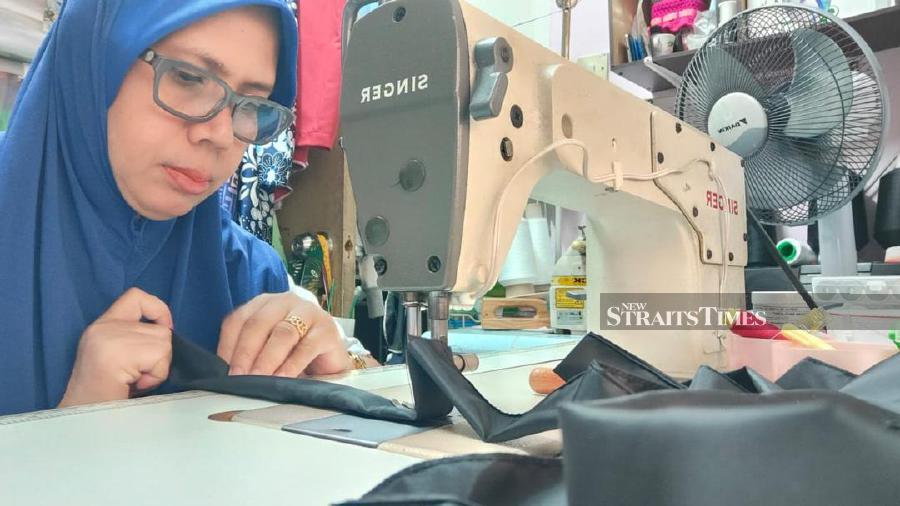
They provide sewing training that helps homemakers enhance their skills and secure meaningful job opportunities, allowing them to balance financial independence with their household responsibilities.
Inside this space, in stark contrast to the quiet outside, there's a lively buzz of activity. A young lad, Muhammad Syafiq Muaz, attentively inspects pieces sewn by local tailors and meticulously packs them for an order.
Beside him sits Nurulhuda Lotpi, the pleasant young woman who greeted me earlier. She's there to help Syafiq pack the attractive earphone cases made out of fabric. Boxes filled with handsewn products are stacked around the room wherever space permits.
"I'm so sorry... it's so messy!" laments a voice from behind the stacked boxes, and a petite figure emerges, her smile wide. "I'm Sue Yii," she introduces herself warmly.
Gesturing around the room, she says apologetically: "We've just moved to this office, so things are a bit all over the place!" Eager to show me around, she beckons me to follow her through the cluttered office-cum-warehouse.
UNIQUE GIFTS
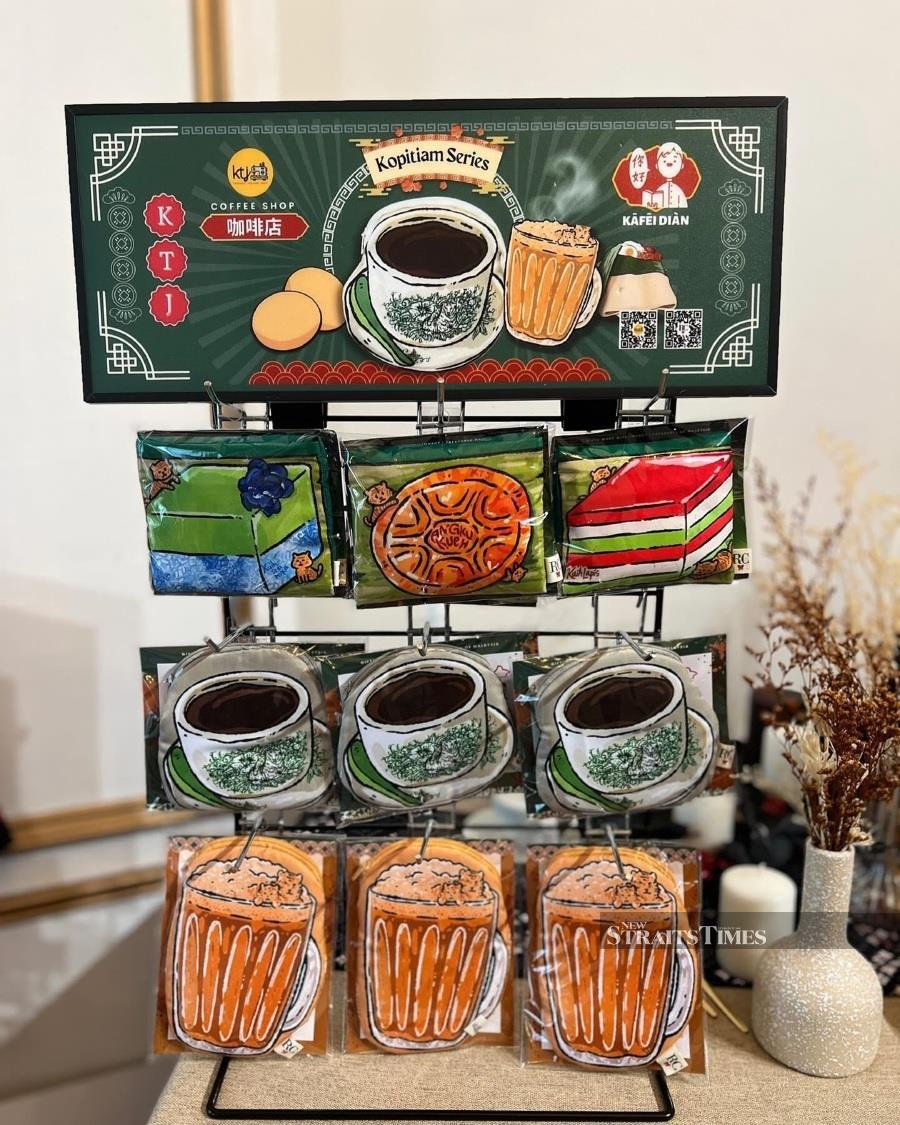
As she shows me around, Yap explains that the social enterprise employs home-based tailors to create handmade bespoke corporate gifts.
"By designing and producing these unique handmade gifts, KTJ enables home-based tailors to earn a more lucrative side income while managing their household responsibilities and caring for their children," she elaborates.
In one of the rooms, KTJ staff member Anas Roshad demonstrates how a charming "nasi lemak" packet can be transformed into a shopping bag. The affable young man also proudly shows me a pencil case that unfolds to reveal a "roti canai" design. "We're constantly seeking innovative ways to create products from discarded and excess fabric," explains Yap.
She then points to a selection of meticulously handsewn purses, name card holders and bags in brightly coloured fabrics, proudly created through the hard work of the tailor "akaks", as she fondly calls them.
Clients often bring in their excess or old materials, such as uniforms and shirts, which KTJ upcycles into unique merchandise for corporate gifts.
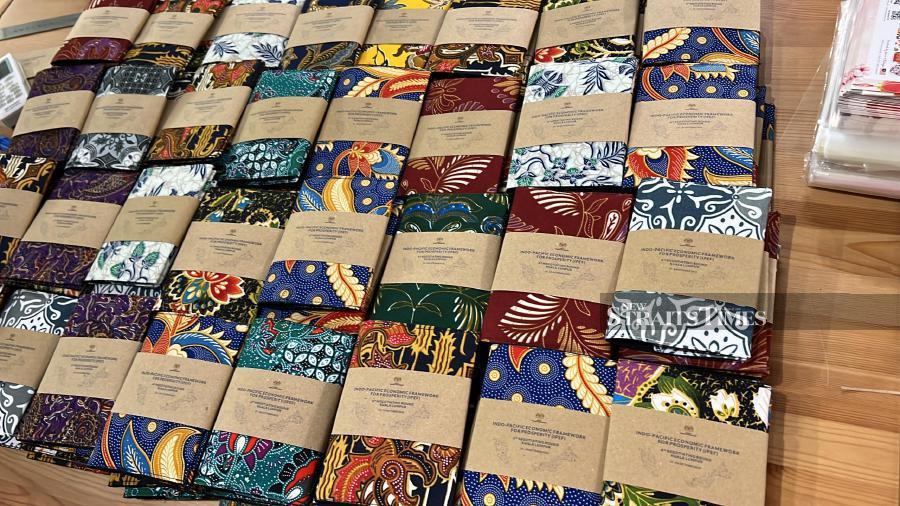
There's little that they can't do, judging from the scores of products neatly packed into plastic containers stacked up against the wall. Corporate gifts, tourist souvenirs, makeup holders, household decor, duffel bags, premium bowties, neckties — you name it, and KTJ can probably sew it.
Yap pushes open a door, revealing their in-house designer, Nurul Qariah, deeply engrossed in a prototype. "She turns our designs into tangible items that we can propose to clients seeking unique corporate gifts," Yap explains. Nurul flashes a warm smile before diving back into her work, her hands skilfully bringing the prototype to life.
UNEXPECTED JOURNEY
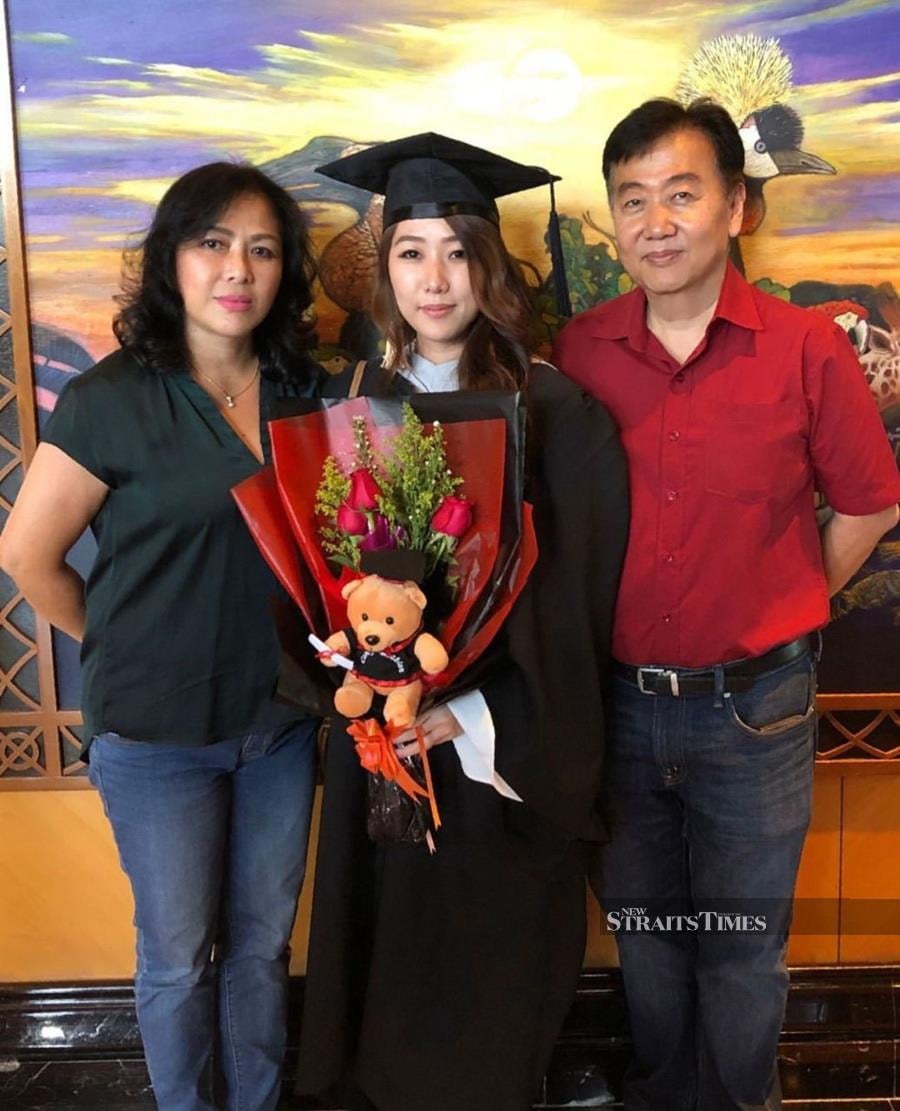
We soon settle down in her office to chat and the bubbly Ampang native is more than eager to talk about KTJ. The 32-year-old is clearly proud of how KTJ has evolved to become a bastion of empowerment for women. "It's been quite a journey," she acknowledges.
Leaning forward, she gazes at me and confesses quietly: "I never imagined I'd be doing this, to be honest. But looking back, I realise that everything has led to this moment. I've inherited both philanthropy and business sense from my parents, and that really helped when I founded KTJ!"
Philanthropy has been ingrained in her since childhood. "I think I got that from my mother," she admits with a smile. Yap recalls how her mother used to involve her and her sister in volunteer work to aid the less fortunate.
However, it was her father who instilled in her a strong business acumen. An engineer who ran his own business, he immersed Yap in the world of entrepreneurship from a young age. "By the time I was 19, he was taking me along to his conferences and networking events," she recalls, adding: "I was fortunate to gain early exposure to the business world."
Fresh out of college with a diploma in industrial design, Yap participated in an apprentice challenge called the Board of Directors (BOD), organised by the Malaysian Global Innovation and Creativity Centre (MaGIC), coinciding with its launch by former United States president Barack Obama in 2014. BOD was an entrepreneurial reality programme where 13 participants from diverse backgrounds competed through ideas and activities documented on social media platforms.
"I was the first runner-up," Yap says proudly, "… and I won RM15,000, which was a princely sum back then!"
Emboldened by her success, Yap decided to also apply for a grant from Cradle, a pivotal agency for Malaysia's early-stage start-ups incorporated under the Finance Ministry of Finance Malaysia, to establish a modest fashion platform called Royal Demure.
Her decision wasn't without challenges, as initially, plans were in place for her to wait for her sister to pursue further studies together in the United Kingdom. However, she surprised her parents by choosing to pursue entrepreneurship instead, despite their initial concerns.
"Ohhh... there were fights!" she admits, chuckling. "My mother was cautious and opposed to taking risks. She thought venturing into business was foolhardy. On the other hand, my father, being a businessman himself, warmed up to the idea a lot faster!"
To ease her mother's concerns, Yap pursued and obtained her degree in interactive media design at One Academy. Concurrently, she established Royal Demure.
UNEXPECTED PIVOT
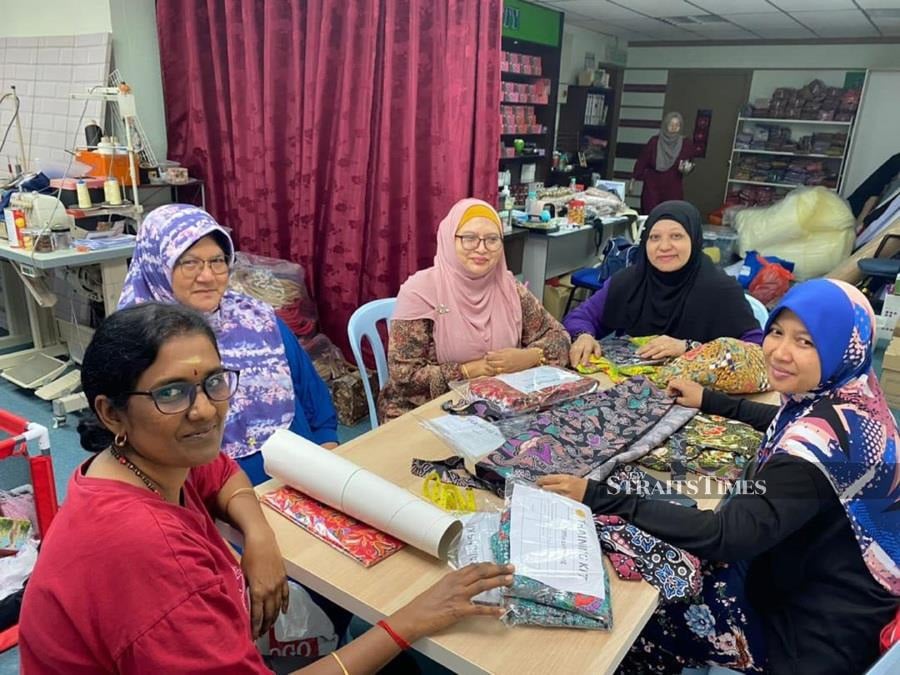
Royal Demure brought Yap together with an old high-school friend, Hasnaa Mansor, who joined her in managing the crowdfunding business. They rented a small space from Hasnaa's mother, who operated a hair salon.
"The whole concept of Royal Demure was to empower fashion designers to bring their designs to life," Yap recalls thoughtfully. "The idea was simple yet impactful — you support a designer by pledging for their designs. Once the funding target is reached, their designs are produced."
Through Royal Demure, Yap assembled a team of skilled neighbourhood tailors ready to sew the designs once orders were confirmed. It was an innovative approach, leveraging crowdfunding to democratise fashion production and support emerging designers.
"At the time, crowdfunding was still in its infancy," Yap reflects. "But we saw its potential to transform how fashion is funded and created."
As promising as the idea was, the harsh reality soon set in for Yap that Royal Demure wasn't taking off as she'd hoped. "It was a combination of bad timing and the fact that orders were sporadic," she reflects, adding: "I had a group of tailors constantly knocking on my door asking if there was more work available. That's when I realised there was a significant gap where these talented tailors were struggling to earn a sustainable income."
These akaks deeply touched Yap's heart, prompting her to reconsider how she could improve their earning opportunities. Their dedication and skill inspired her to explore new avenues for enhancing their financial stability and empowerment. This led Yap to strategise and seek ways to elevate their roles and ensure they received fair compensation for their craftsmanship.
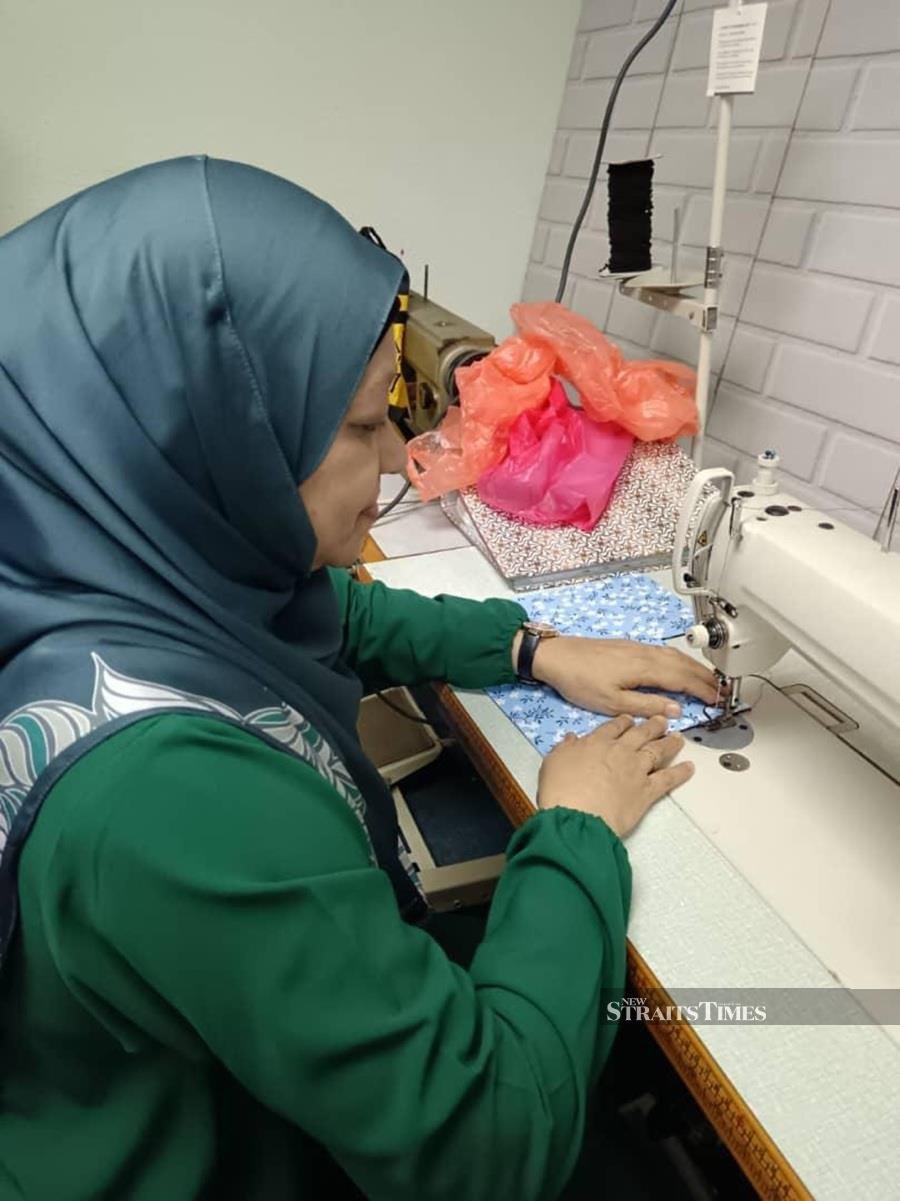
This was when Yap decided to change things up.
From the foundations laid by Royal Demure, Kommuniti Tukang Jahit (KTJ) arose as a collective initiative, empowering women tailors to achieve sustainable livelihoods.
Seeking sustainable opportunities for the akaks, Yap eventually secured orders for corporate gifts from companies seeking unique items for their events. One of their most significant orders came from Soroptimist International Region of Malaysia (SORIM).
"We were incredibly grateful because it marked our first corporate order," Yap reminisces with a chuckle. "Looking back, the quality then compared to now... well, let's just say there's been quite an improvement. But we were sincerely grateful for the opportunity!"
WOMEN ARISE
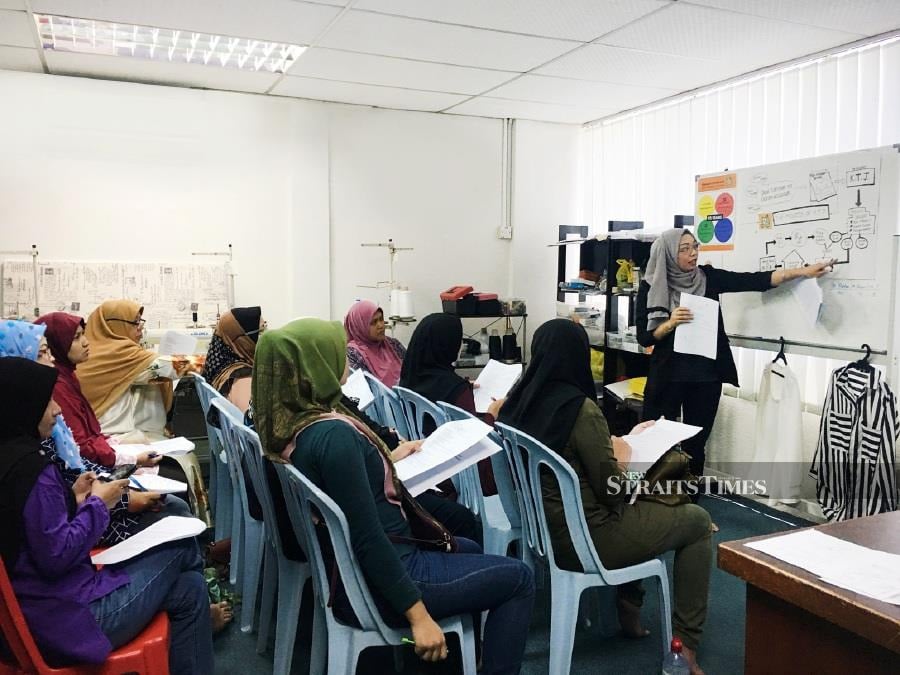
As orders for corporate gifts started coming in, these local tailors could now work from the comfort of their homes. Many of them were housewives managing household responsibilities, making it difficult for them to commute to a traditional workplace. KTJ facilitated this by providing materials and allowing them to work from home, ensuring they could balance work and family duties effectively.
With the influx of orders also came the necessity to enhance the tailors' skills. "While there are many sewing classes available, they often don't align with our specific needs for gifts and our vision," Yap explains, adding: "We had to develop our own standards, criteria, and quality benchmarks, transforming them into a structured training programme."
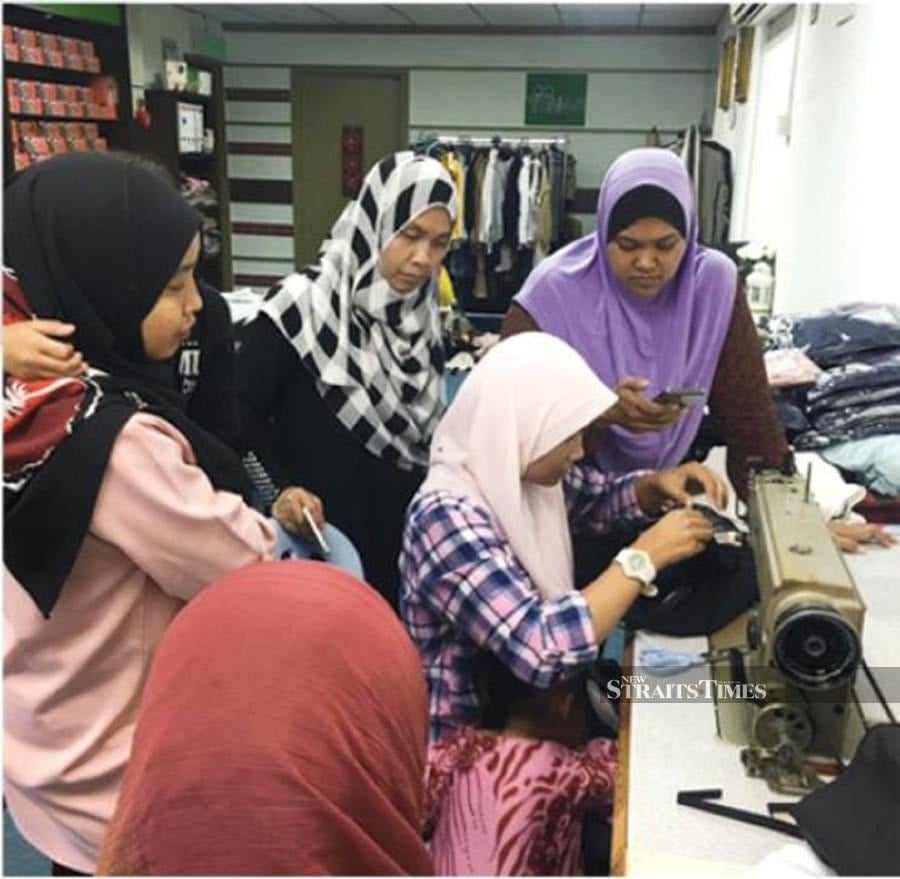
Through this programme, the tailors learn step-by-step, progressing in difficulty as they advance. Importantly, as their skills improve, so does their upah (compensation), reflecting their growing expertise and contribution to KTJ's success.
But the true measure of success lies in the empowerment of these humble tailors, many of whom are earning their own income for the first time through KTJ. "There are countless stories of these housewives who experienced financial independence for the first time," shares Yap.
For these women, KTJ represents more than just a source of income — it's a gateway to newfound confidence and self-reliance. By providing them with meaningful work opportunities and the ability to contribute financially to their households, KTJ has transformed their lives in profound ways.
"We currently have about 70 active tailors under KTJ, but we've empowered more than 300 women tailors so far," she says proudly. Pausing briefly, she tilts her head to catch snippets of lively conversations outside the office, before continuing: "Ah, they're here. You should meet some of my akaks!"
Yap then guides me outside to meet two who have just arrived. The camaraderie among them is palpable, reflected in their warm and familiar greetings. Their genuine fondness for each other is evident, underscoring the strong bond they share from their collective experiences at KTJ.
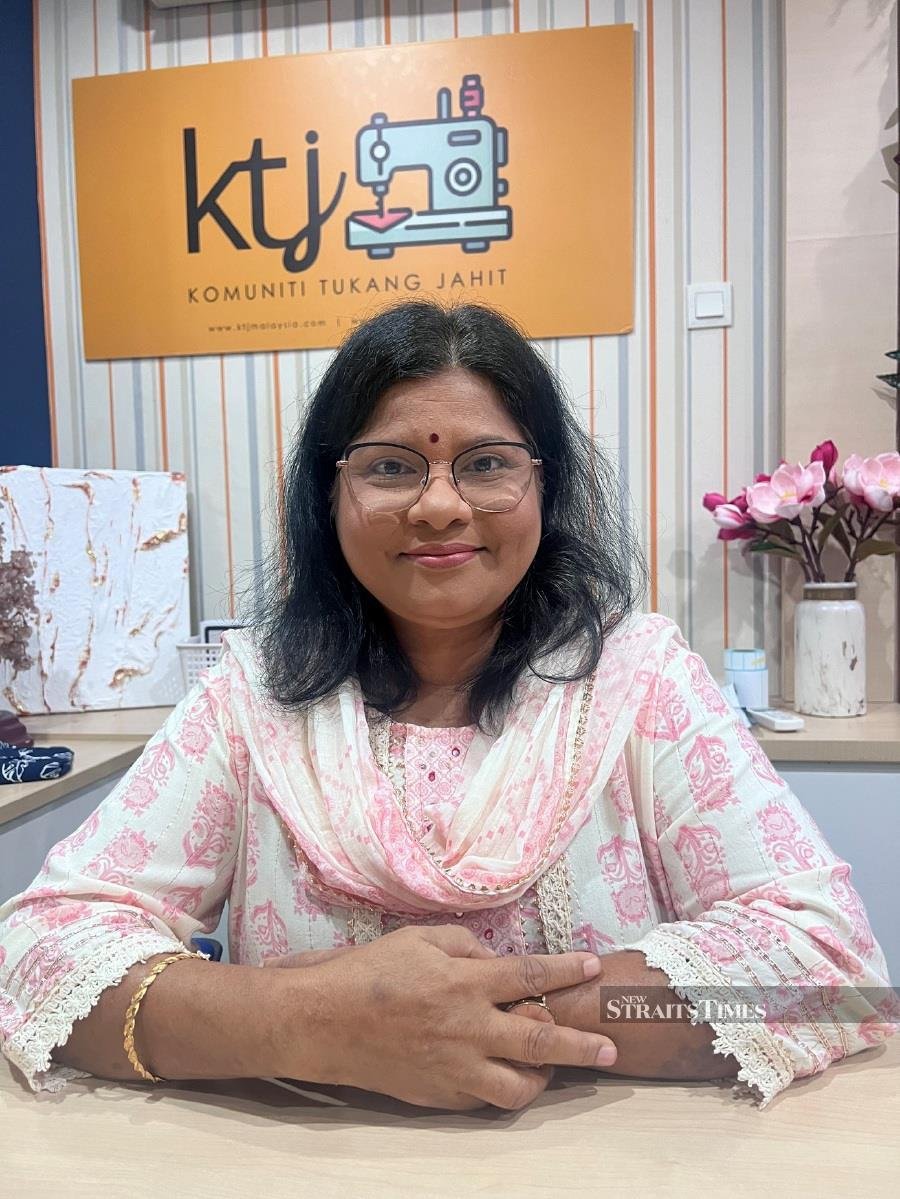
For 52-year-old Suganthi Devi, KTJ has been a lifeline, especially during difficult times. "I've always had a passion for sewing, and when I discovered KTJ, I quickly honed my skills," the mother-of-three shares, adding: "It hasn't only provided me with a steady income to support my family during lean periods, but has also given me newfound confidence." Leaning forward, she beams: "I'm so happy, sister!"

Stumbling upon KTJ on Facebook marked a significant turning point for Norhazimah Noh. "Initially, I saw it as a hobby, but I never imagined it would become a viable source of income," reflects the 46-year-old.
As KTJ grew, she decided to commit herself fully to the social enterprise. "It's more than just a job — it's a passion where I've gained invaluable experience," she adds with enthusiasm. "KTJ has been a crucial source of support and income for housewives like me. It creates a space where we work together, build lasting friendships, and feel empowered. Saya sangat bersyukur… (I'm very grateful)"
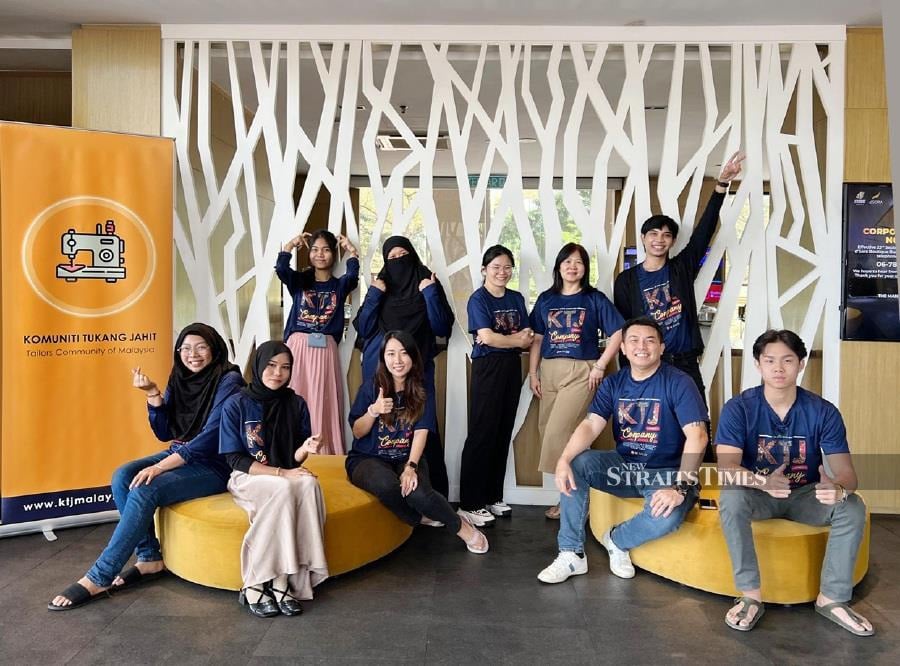
For these two women and many others, KTJ has been a lifeline. Yap passionately asserts that this is the essence of their social enterprise. "While it didn't begin as a stronghold for empowering women, along the way I discovered my purpose. KTJ has truly found its place as a beacon of hope."
As I step into the waiting Grab car, I can't help but steal one last glance at the nondescript little shop in Ampang. It's astonishing to think about how much light and hope emanate from within its unassuming walls, tucked away behind opaque glass panels.
Here, amidst the hustle of everyday life, lies a sanctuary where dreams are sewn into reality, and where the quiet strength of community and empowerment thrives — one stitch at a time.
For details, go to www.ktjmalaysia.com.


